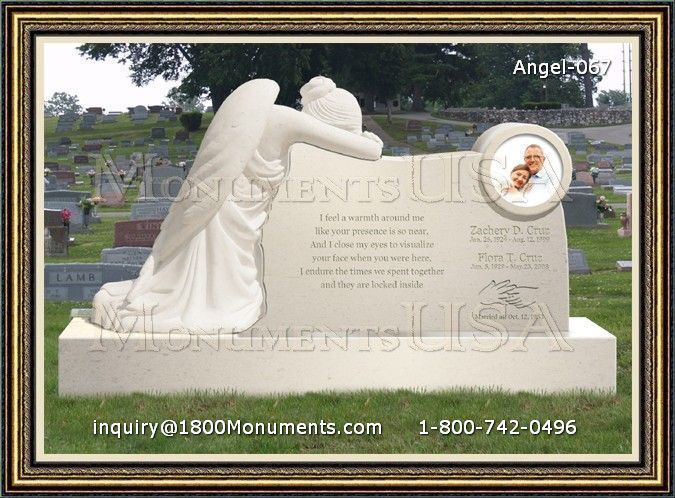
|
Headstones Starting From $3,000 Up | |
| About Us Contact Us Blogs | ||
| inquiry@1800Monuments.com Toll: 1-800-742-0496 | ||
 |
 |
 |
 |
 |
 |
 |
 |
 |
 |
 |
 |
 |
 |
 |
 |
 |
 |
 |
 |
 |
|
|||
| Categories | |
| Tips | |
| Previous 1 ... 131 132 133 134 135 136 137 138 139 ... 321 Next Page: | |||
| Child Angel Headstone | |||
 | |||
What To Know When Going To Jewish Funeral Services The requirements of Jewish Funeral Etiquette share many of the features of any memorial service. The customs surrounding this time for mourning include sharing pleasant memories of the lost loved one and paying your last respects. The rules of etiquette that apply to the burial customs of this religion have many similarities to all funerals. From time of death, the body of the deceased is to be observed continuously until it is buried. Usually a family member oversees the preparation for the burial ceremony. During the washing it is traditional to keep the body facing up. Custom mandates that men prepare men for burial and women prepare women. Each will be dressed in a simple white shroud. This assures that rich and poor are buried with an equal amount of dignity. A wooden coffin is used because a body is supposed to turn to dust eventually. Holes are drilled in the bottom of the casket for that reason. People show sorrow by tearing at their outer clothing. The funeral is conducted no more than 48 hours after death. Jewish custom dictates a closed casket. Prayers will be offered by a rabbi in Hebrew. Eulogies are given by the members of the family. Conservative clothing in dark colors is the customary clothing for family and friends to wear. No casual clothes are permitted, such as sandals or shorts. That would show a lack of respect on this solemn occasion. In most cases, only family members attend the burial at the cemetery. They next sit shiva in the following week. Flowers are not brought to the family. Instead, those who visit to offer condolences bring gifts of food. Kosher foods and other meals are all acceptable gifts. The family is supposed to be able to avoid cooking during the mourning period. Visitors share memories of the deceased in the form of anecdotes and stories. Jewish Funeral Etiquette encourages showing that the one who passed away will be missed and remembered. | |||
| Previous 1 ... 131 132 133 134 135 136 137 138 139 ... 321 Next Page: | |||
|
|||
| Copyright © 2014 1800Monuments | |
 |